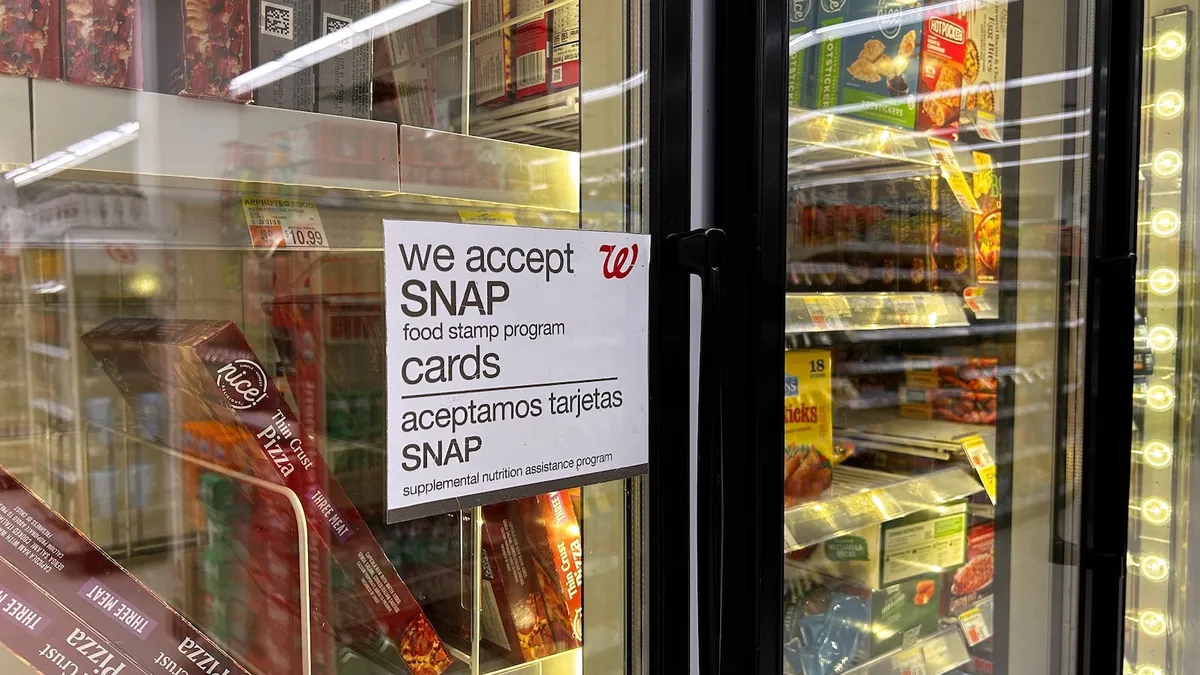
A significant food assistance program, the Supplemental Nutrition Assistance Program (SNAP), is set to pause for millions of Americans in need as the government shutdown enters its fourth week. Air traffic controllers are also bracing for their first missed paycheck this week, heightening the urgency for congressional lawmakers to negotiate a resolution. As the situation develops, all eyes are on Capitol Hill to see if the increasing pressure will motivate lawmakers to reach a compromise.
The Department of Agriculture recently announced on its website that SNAP benefits will not be distributed on November 1, a decision attributed to the ongoing government shutdown. This announcement is particularly alarming for the approximately 42 million low-income Americans who rely on SNAP, commonly known as food stamps. While SNAP is typically fully funded by federal sources, its administration falls under state jurisdiction. Consequently, the impact of the shutdown on SNAP and the timeline for benefit disruptions will differ from state to state.
Over the weekend, the Trump administration clarified that it would not provide additional funding for SNAP, placing the blame for the ongoing shutdown on Democratic lawmakers. This current stance marks a notable shift from the USDA's earlier shutdown contingency plan, which indicated that congressional intent was clear regarding the continuation of SNAP operations. The plan stated that SNAP had access to multi-year contingency funds that could be utilized to support state operations during a federal government shutdown. However, a recent memo from the USDA, obtained by ABC News, clarified that these contingency funds are only accessible when SNAP funding has been approved by Congress.
During the early days of the shutdown, the Trump administration redirected other funds to ensure that service members were compensated, even while asserting that similar measures would not be taken for SNAP funding. On Monday, House Speaker Mike Johnson argued that the contingency funds for SNAP are currently not legally available to cover benefits and urged Democrats to support a clean continuing resolution to reopen the government. He explained that these funds are limited and were appropriated by Congress, and transferring them could detract from other essential programs such as school meals. “There has to be a pre-existing appropriation for the contingency fund to be used,” Johnson stated.
The effects of the government shutdown are also being felt in the aviation sector. Over the weekend, the Federal Aviation Administration (FAA) had to slow air traffic in major cities, including Chicago, Dallas, Southern California, and Newark, due to staffing shortages. Many air traffic controllers are now forced to work without pay, with their first missed paycheck occurring on Tuesday, further complicating an already tense situation.
In addition to SNAP and aviation concerns, another critical deadline is approaching regarding health care premiums. As the November 1 open enrollment date nears, Democrats are intensifying their efforts to secure health care subsidies. The ongoing shutdown continues to affect Americans across various sectors, creating a pressing need for lawmakers to break the current stalemate.
As the deadline for negotiations approaches, House Speaker Johnson criticized Democrats and expressed the administration's commitment to minimizing "pain on the Americans." He urged for bipartisan cooperation to protect the interests of the millions who depend on SNAP. “We need five more Democrats in the Senate to do the right thing,” he emphasized, highlighting the urgency of the situation.
Meanwhile, the president of the country’s largest union representing federal workers has called on lawmakers to pass a short-term spending bill to end the shutdown. “It’s time to pass a clean continuing resolution and end this shutdown today,” stated Everett Kelley, National President of the American Federation of Government Employees (AFGE). This union represents over 800,000 federal and D.C. government workers, and Kelley emphasized the need for leaders to prioritize solutions for the American people instead of engaging in blame games related to the shutdown.
As the government shutdown continues to impact millions of Americans, the pressure mounts for lawmakers to find a resolution that addresses the urgent needs of those dependent on vital assistance programs like SNAP and essential federal services.